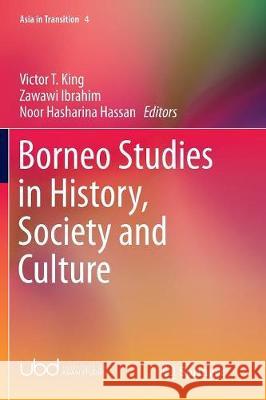Borneo Studies in History, Society and Culture » książka
topmenu
Borneo Studies in History, Society and Culture
ISBN-13: 9789811092251 / Angielski / Miękka / 2018 / 606 str.
Borneo Studies in History, Society and Culture
ISBN-13: 9789811092251 / Angielski / Miękka / 2018 / 606 str.
cena 647,83 zł
(netto: 616,98 VAT: 5%)
Najniższa cena z 30 dni: 650,86 zł
(netto: 616,98 VAT: 5%)
Najniższa cena z 30 dni: 650,86 zł
Termin realizacji zamówienia:
ok. 16-18 dni roboczych.
ok. 16-18 dni roboczych.
Darmowa dostawa!











